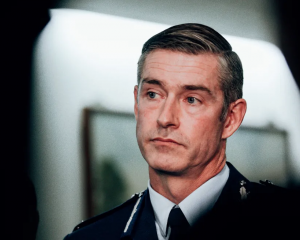A lack of HIV experts in New Zealand means police should have looked overseas to get advice before laying a murder charge against George Gwaze, a medical professor says.
Mr Gwaze was yesterday acquitted for the second time of sexually violating and murdering 10-year-old Charlene Makaza.
After a four-week retrial, a jury of seven men and five women took almost 15 hours to reach their verdict at the High Court in Christchurch yesterday.
It is the second time Mr Gwaze has been acquitted on charges that he raped and murdered Charlene in her bed at the family home in Bryndwr on January 7, 2007.
He was acquitted for the first time on after a High Court trial in 2008.
The Crown unsuccessfully appealed against the jury's original not guilty verdicts at the Court of Appeal but in a legal first, the Supreme Court quashed Mr Gwaze's acquittals last year and ordered a retrial.
During this month's trial, the Crown argued that HIV-positive Charlene was sexually attacked and suffocated by her uncle who she knew as "dad''.
But the defence team said Charlene died from an overwhelming HIV infection that damaged her internal organs and anal-genital area.
Professor Felicity Goodyear-Smith, a sexual abuse expert at University of Auckland who worked behind the scenes for Mr Gwaze's defence, told Radio New Zealand that experts were not called on in the first trial and the story was instead put together in sequence.
"The jury could see in the first trial really that this was such an unlikely event to have happened, and that it was actually an erroneous belief that the child had been abused in the first place and they acquitted her.''
In the second trial the defence called on evidence from overseas experts.
"In New Zealand, fortunately, we don't have much exposure to HIV at all, but when you have an extraordinary presentation like this then you have to keep an open mind and think well maybe we need to go outside of New Zealand and look for people who are experienced in this infection.''
Police knew Charlene was HIV positive, but they had discounted it as a reason for causing the overwhelming infection, Ms Goodyear-Smith said.
"They decided because she had been abused there must be another cause for her state of collapse and therefore they hypothesised she must have suffocated, there was no evidence at all of suffocation,'' she said.
"HIV is a very unusual disease, it causes a huge range of possible presentations, it can be devastating, both because it damages tissues itself but also because it makes you very susceptible to infection and your infection may manifest in ways that may not happen in a normal person.''
Detective Superintendent Peter Read said the trial would have happened no matter what medical experts had told the police.
"This would have gone to trial because of the complex issues involved and the fact that there was no agreement between the various experts around what actually happened.''
After yesterday's acquittal Mr Gwaze said he was relieved with the verdict, but was always confident his innocence would be proved.
"I knew there was nothing that happened to our daughter.''
His lawyer, Jonathan Eaton said the verdict was very rewarding and "satisfying'' for his client.
"It's been an extraordinary long road,'' Mr Eaton said.
"I don't know anybody in our legal history who has stood on these court steps having been acquitted twice.
"The Gwaze family have been through the wringer with the judicial system.''












